Maia and I met at Sugarloaf Fine Arts Camp as kids and have always been sort of kindred spirits. We’re both loud, pretty opinionated, artsy fartsy, and have a deep love for the outdoors. Over the past few years, I’ve kept in contact with Maia via social media and have seen them grow into an outspoken advocate for the queer community. While I’ve known Maia was qeer for some time, I realized that I didn’t truly know what it meant to them and was curious to find out. There seemed to be A LOT of different terms and phrases associated with queer identity so I was very eager to dig a bit deeper and hear about Maia’s personal experience. I’m unendingly appreciative for the time they gave me when answering my (fairly novice) questions as well as the compassionate nature of their responses.
*Disclaimer: I started a portrait project a few years back titled “To Be Woman” but have recently realized how restrictive that is to my ultimate goal of uplifting up a multitude of human stories. I’m thrilled that Maia is the first gender void participant in my newly christened “To Be” series. 🙂
K: Why don’t you introduce yourself and tell everyone a little bit about you.
M: [I’m] Maia Fernandez, they/them, queer (to be hyper-specific: Gendervoid quoriomantic demi/noeti/bisexual).
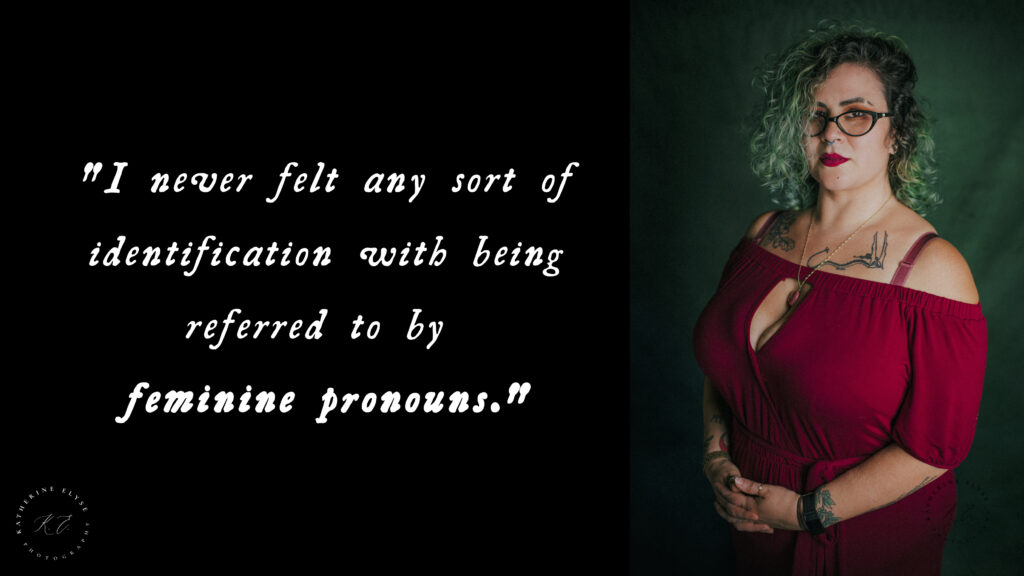
I am terrible at giving blurbs on myself, haha. I have an M.A. in Literature, combining my love of pop culture and spooky folklore with my mestizx heritage. I generally prefer being out in the forest, as opposed to my house in the city, and head out there as often as I can. During the stay in place order, most my free time is spent running D&D, playing video games, drawing, trying to learn mandolin, and running out to the forest.
K: When did you first become familiar with what it means to be gendervoid/nonbinary?
M: I can’t speak toward what being nonbinary means for anyone but myself; the trans community is so wide and has so many differing experiences and perspectives that if you line up 100 people from the community, you’ll have 100 different explanations of gender.
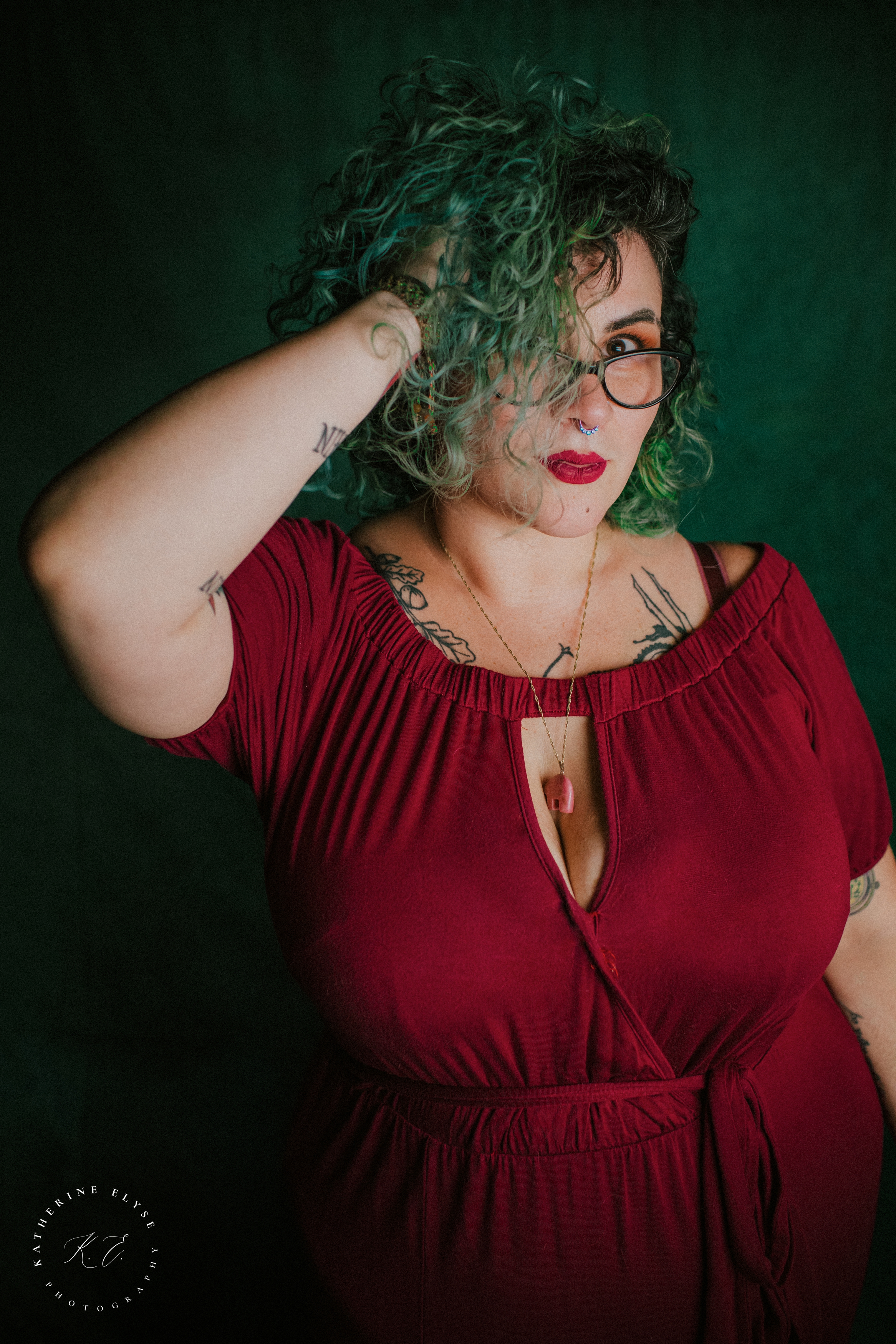
K: Can you talk me through your process of coming to understand your specific experience with gender?
M: Gender has always been rather tricky for me. I grew up a tomboy – as far back as I can remember, I didn’t like dresses, and preferred playing in the dirt and roughhousing. Of course, that doesn’t mean anything regarding gender identity, but it helps illustrate the train of thought. When I was 15, I went on a camping trip with a (gay, cis male) friend of mine. We spoke at length one evening about gender and how we know we’re our genders and what it feels like to be our genders. I realized, fairly quickly, that I have absolutely no idea what it means to be a woman. And not just because I was some precocious teenager; I never felt any sort of identification with being referred to by feminine pronouns.
It was this horrifying revelation; all I knew was male-female for genders, and if I didn’t identify as a woman, then clearly I must be a man. I called my mom in an absolute panic and she just shut it down. I didn’t know how to respond, so I hung up.
The idea of gender stayed in the back of my mind, but never resurfaced until my early 20s when I learned about nonbinary identities. Genderfluid didn’t fit, because my gender didn’t change or shift. Genderqueer fit the best for a while until I read about agender identities on Tumblr (hey, the site has its benefits). I spent probably too long on https://lgbta.wikia.org/wiki/ looking at different gender identities, sexualities, and romantic attractions. I overloaded the hell out of my brain and slowly just came to recognize that I don’t know what my gender identity is because I don’t have one.
When I think about my body, my mind, and the labels attached to it, I never really felt that the concept of gender as a whole had any space. My body has always just felt like this weird, awkward meat sack powered by electric signals, and the idea of assigning an abstraction of gender somehow never clicked for me. My sexual and romantic identities are just as abstract, but those managed to wiggle their way in.
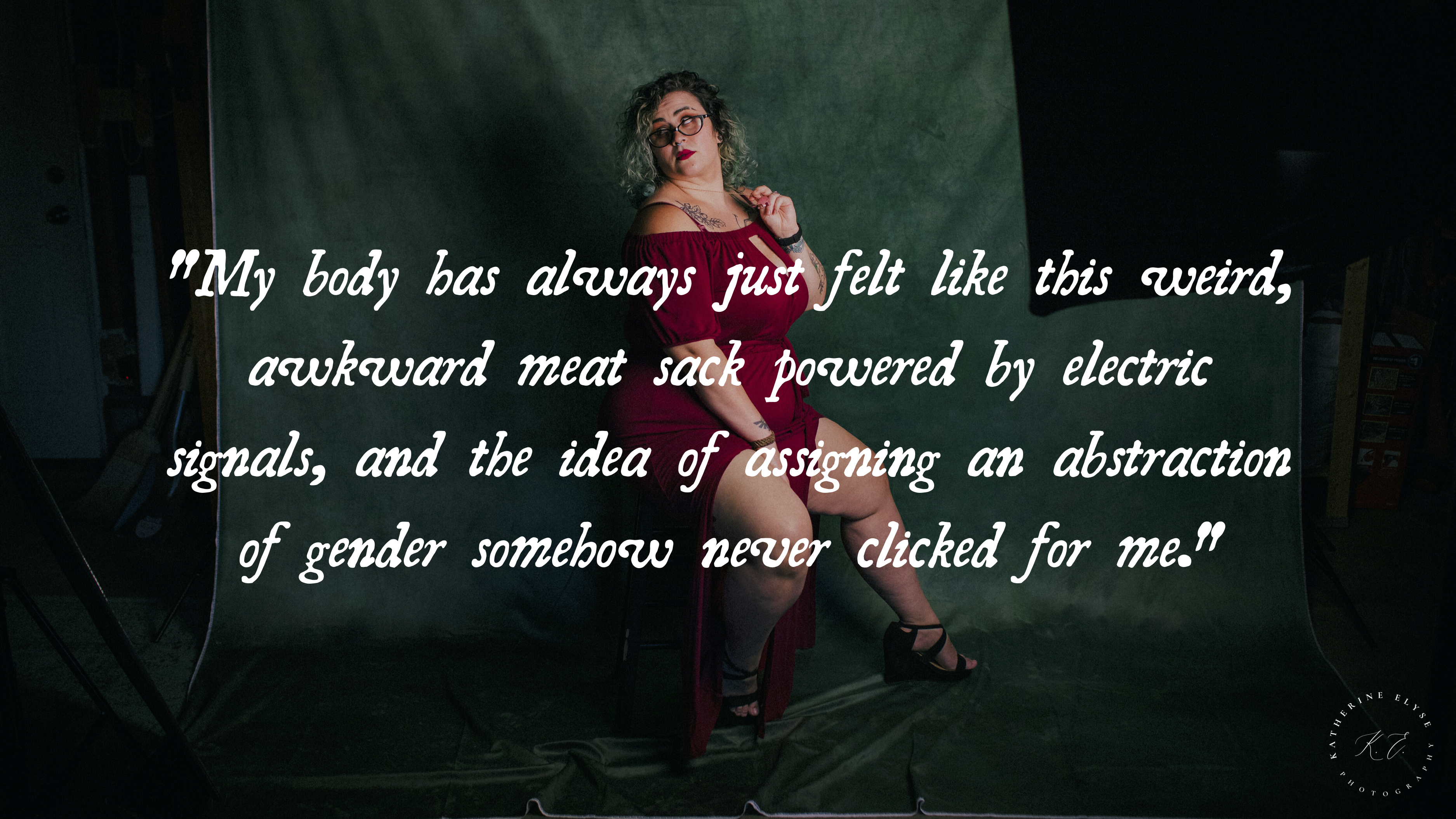
It’s difficult, most days, because I don’t dress or look androgynous, in terms of identity or gender presentation. While androgyny has nothing to do in the grand scheme of things when it comes to being nonbinary, there’s still an implicit expectation that being nonbinary means you actively try to look like both/neither masculine or feminine, but are also thin/waifish, with little curves or contours, and have sharp/angular features. That “real” nonbinary people walk down the street and the average passerby can’t tell upon first blush if they’re a man or a woman. I’ve had close friends tell me that because I don’t actively work to look more masculine, they forget my pronouns. That it’s hard to remember my pronouns because I “just look so much like a girl.”
I never used to like dresses or makeup, and it wasn’t until about 8th grade that I stopped shopping in the boys’ section for clothes (cargo shorts are a blessing and I stand by that). As I got older and more secure in my identities, I started dressing more feminine. That, and when you’re in the throes of a horrific depression episode and the idea of wearing clothes is just a nightmare, the ability to throw on a dress and call it an outfit is a blessing.
But I don’t bind my chest, I’m not on T, and I have no intention of undergoing top or bottom surgery. On top of that, I’m fat and dress fairly feminine (I really have to emphasize how amazing dresses are for people with depression). I like my boobs, hard as it is to find bras that fit, and that doesn’t invalidate my lack of a gender. Deconstructing gender presentation expectations, gender norms, and the entire construct of gender removes the correlation of physical appearance with gender – as it ought to – and needs to happen. Strangers’ discomfort does not supersede my right to exist, freely and as myself.
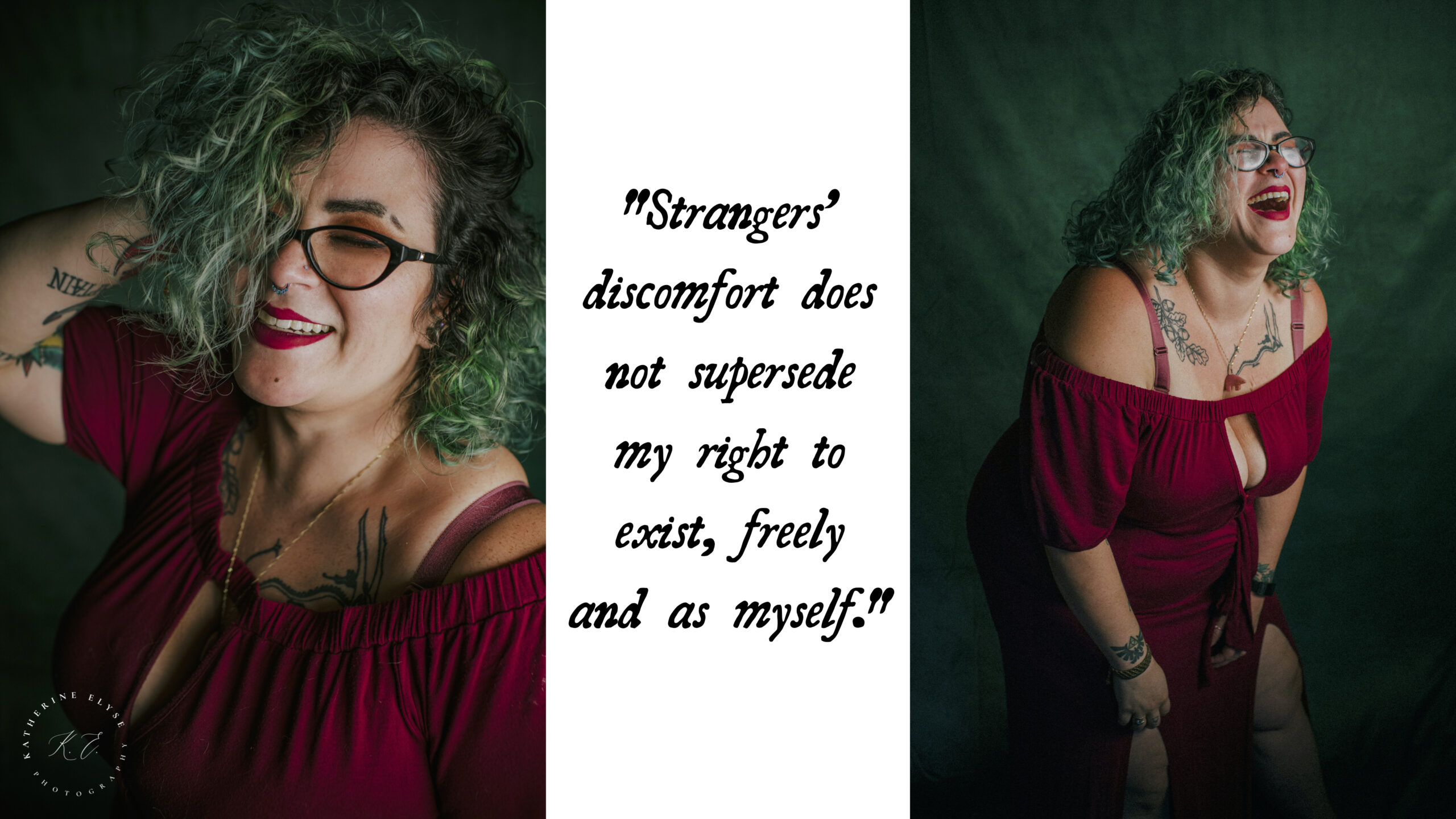
K: Have you personally been discriminated against for your sexual orientation or gender identity?
M: I think microaggressions like that – saying I look too much like a girl to remember my pronouns – are the more casual forms of discrimination I’ve faced. Granted, there are some people who openly admitted they’re going to have a hard time with they/them and nonbinary pronouns in general, and a select few are people where misgendering doesn’t bother me. Only a few, though, and they already know who they are. Otherwise, I expect people to use my proper pronouns because it, yanno, denotes basic respect and human decency.
Growing up in Placerville, homophobia was fairly common. Before Prop 8 in 2008, there were the Truth Trucks – giant, red trucks covered in signs and banners and what have you quoting the Bible and the infamous “God made Adam and Eve, not Adam and Steve” slogan. They had loudspeakers attached to the roof of the truck, driving past schools and shouting their bigotry. I am not a passive person, and I have never known when to keep my mouth shut.
I dated a guy when I was 18 who kept telling me that I’m not actually bi because I hadn’t had sex with a woman in over a year, and was thus actually just bicurious. Mind you, this was around a year into our monogamous relationship. Logic.
More recently, aphobia – the belief that those on the asexual spectrum don’t have a place in the LGBTQIA+ community (despite the, you know. A) – is on the rise. I also recently figured out that I fall under the ace umbrella (demisexual) and the aromantic (it’s like asexual but with romantic attraction) umbrella (quoiromantic). The idea, I’ve seen, stems from asexuality being a relatively new term, compared to gay, lesbian, and bisexual. Historically, ace folk were lumped in with bisexuality because, reductively, no attraction to any gender is still equal attraction to any gender. I’d like to say that aphobia will gradually fade away and people will begin recognizing asexuality as part of the LGBTQIAA+ community, but seeing as people within the community are still transphobic and biphobic – to say the least – doesn’t offer much hope.
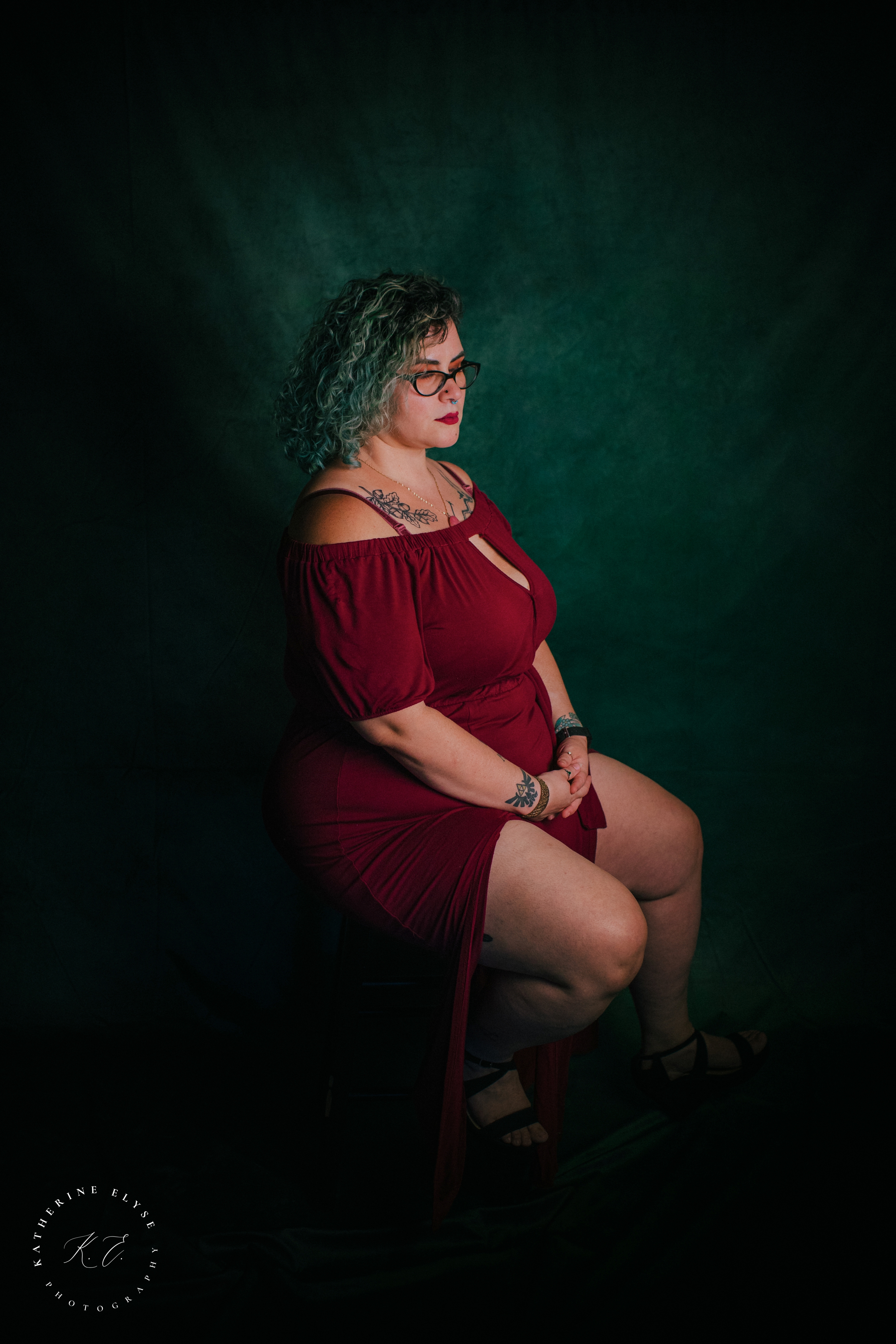
K: What would you like cisgendered people to know about you or the queer community in general? Any advice on how to be a good ally to the LGBTQ+ community?
M: Honestly, the best way for people not part of a community to combat their implicit biases, microaggressions, and conscious or subconscious participation in oppression is to listen, not get reactionary / defensive, and understand that a person within that community probably has a better idea of what the experience is like. It’s like having a cis man tell a woman what it’s actually like to be a woman, yanno? Just…stop. No. I don’t need a cis person telling me how to look nonbinary, just like I don’t need someone who isn’t bi or demisexual to tell me what those terms actually mean, just like I don’t need someone who isn’t mestizx or Mexican telling me how to be Mexican.
Another part of that is humility. Nobody is perfect and everyone has hurt someone else, intentionally or not. What’s important is to accept with grace that someone trusts you and your relationship with them enough to tell you that you’ve hurt them. It’s a huge display of vulnerability on the hurt party, and overcoming the kneejerk reaction to deny, get defensive, and shut them down shows not only extreme emotional maturation, but strengthens the relationship. It’s something I had to work really hard to do, both because I hate the idea of hurting people, and I hate the idea that I can be problematic. But both are true and both still happen. The important part is to accept the criticism and grow from it. Acknowledge the hurt you’ve done, apologize, and consciously work to not repeat it.
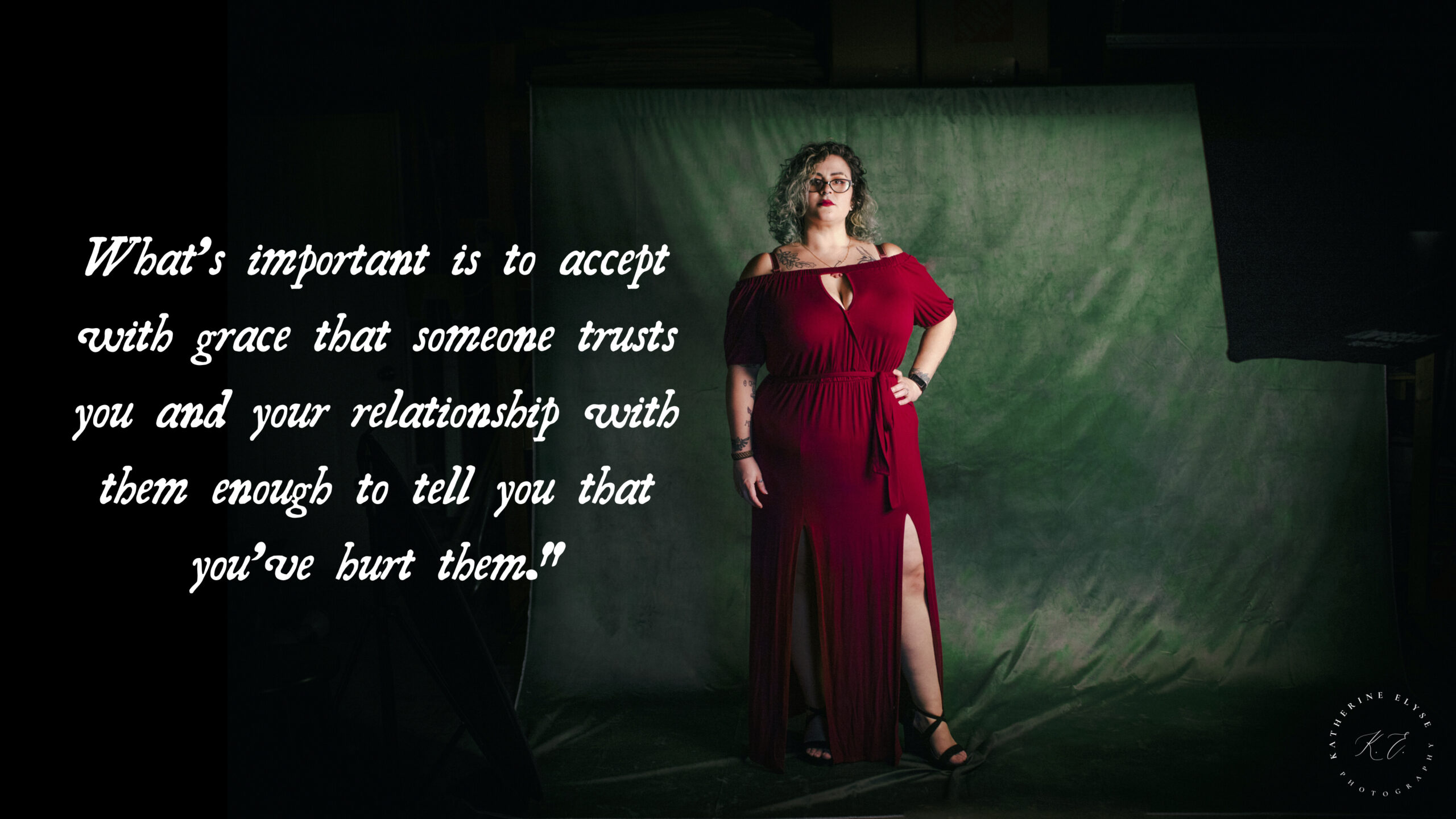
K: Describe your support system. Are there any causes that are particularly important to you that you’d like to shout out?
M: I’m really lucky and grateful that I’ve never had to hide who I am from my mom, and that I never felt I would lose my home / stability / life for being queer. I recognize that isn’t a privilege a lot of people have, and I try to exude the same love and compassion toward them that mom’s always shown me (even if she doesn’t understand everything I’m saying). She’s one of my best friends, and an absolute pillar when it comes to my support system. I have a pretty large support system, if I really think about it, and I also recognize how lucky I am for that, too. Not only do I have my 2 boyfriends and other partner, but I have a hefty handful of friends who are there for me when I need them – just as I am for them. I think stabilizing a support system and really solidifying those bonds and relationships are crucial during the pandemic, even if it’s with people you can’t regularly see in person. Having these systems are doubly important for the LGBTQIAA+ community, those who are mentally ill, and PoC – especially Black folk.
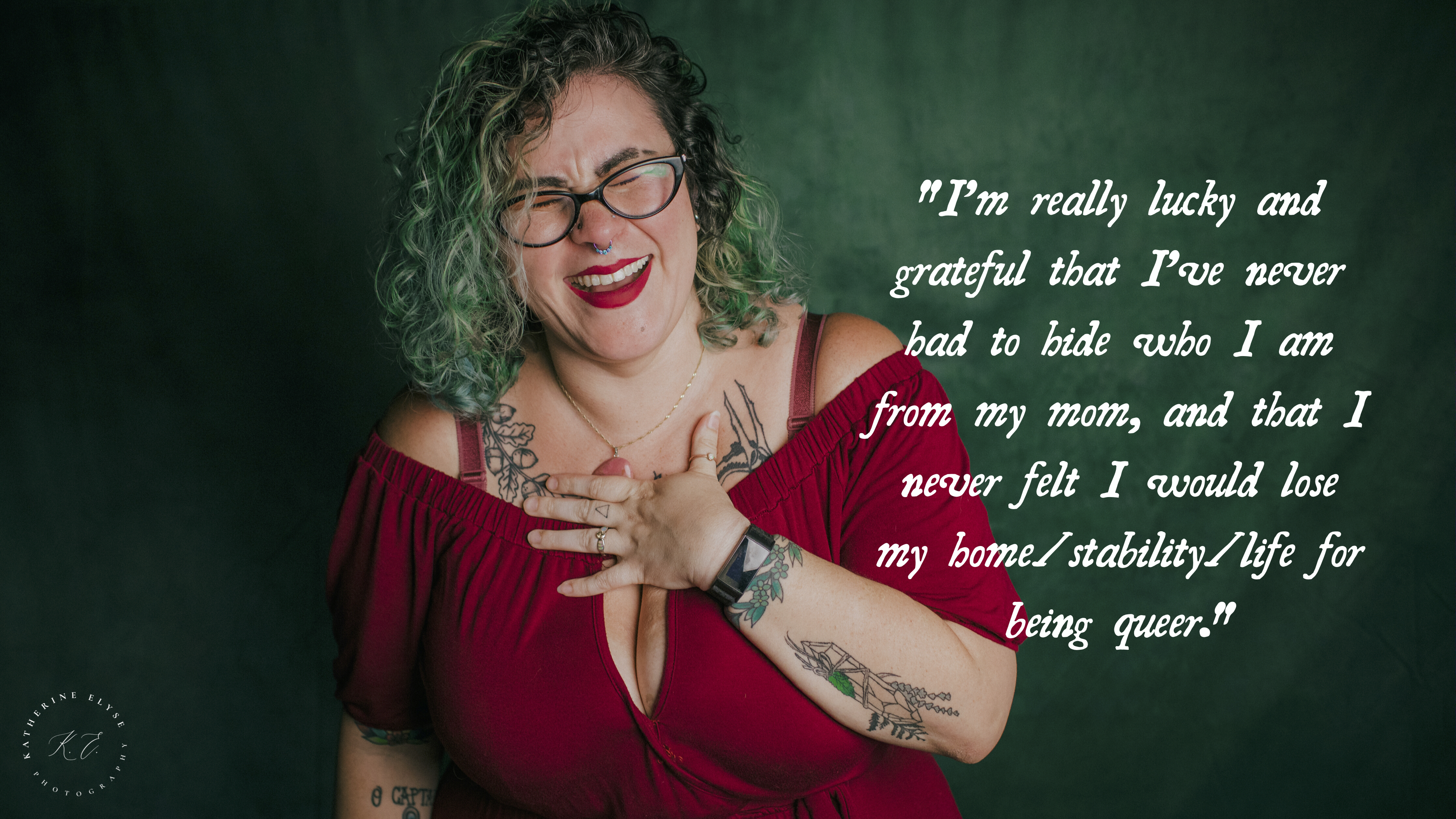
Which, with the current affairs of the world, all I can really say is Black Lives Matter. Support your local Black community, the BLM movement at large https://blacklivesmatter.com/, and look into organizations in your area that offer aid for protesters. The officers who murdered Breonna Taylor need to be arrested and charged for their crimes. My fellow trans folk need protection now that the Trump administration decreed we do not deserve access to healthcare. Indigenous tribes are being ravaged with coronavirus deaths and received no aid. Our system is inherently designed to kill and hinder, and it is our collective responsibility to fight and enact change and equity. We are all allies to one another, and we need to work together.
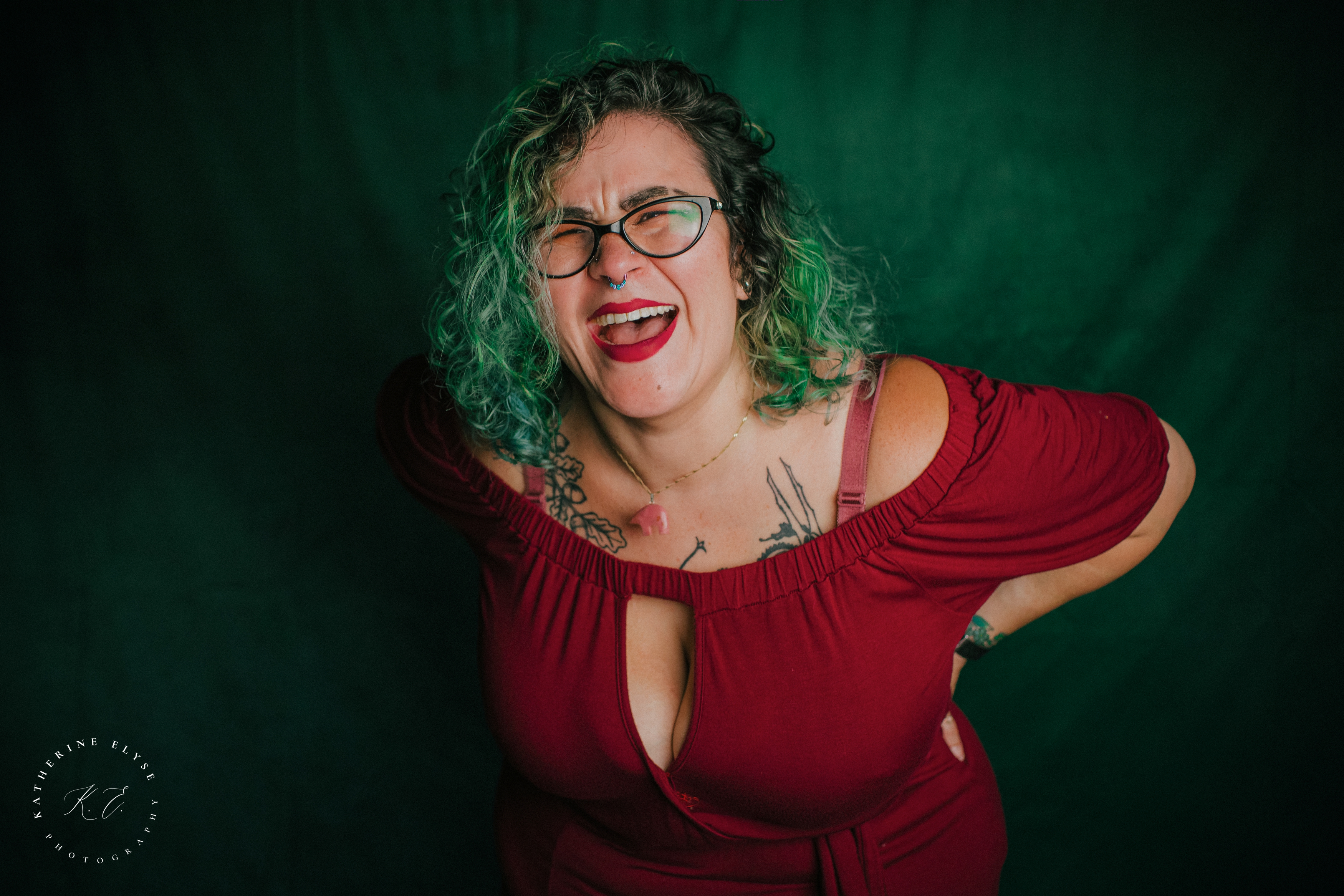
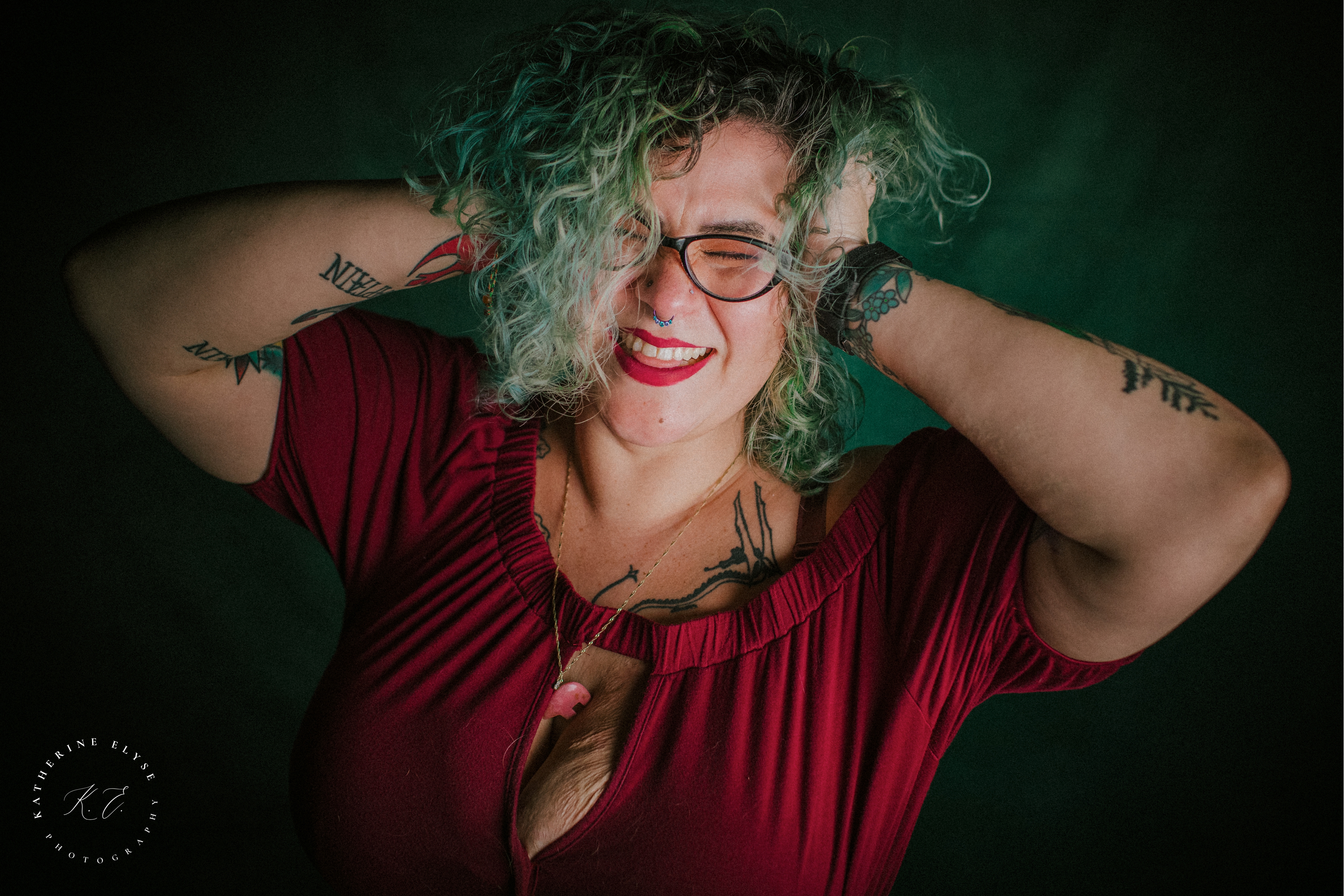
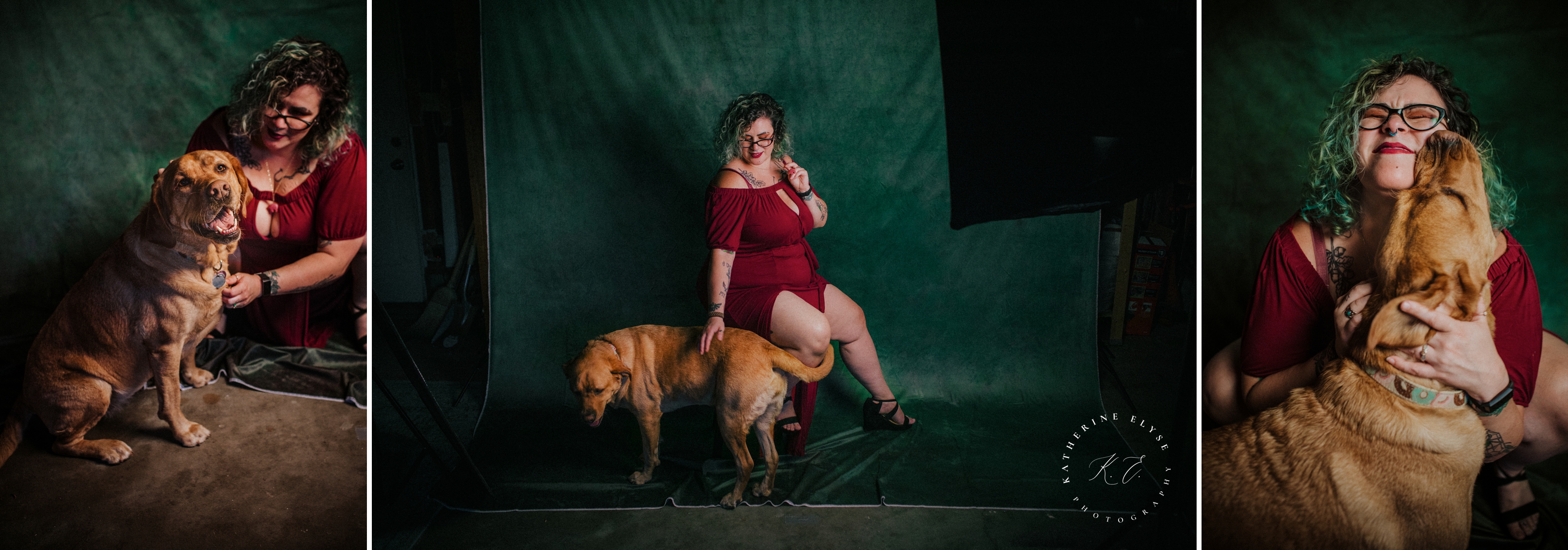
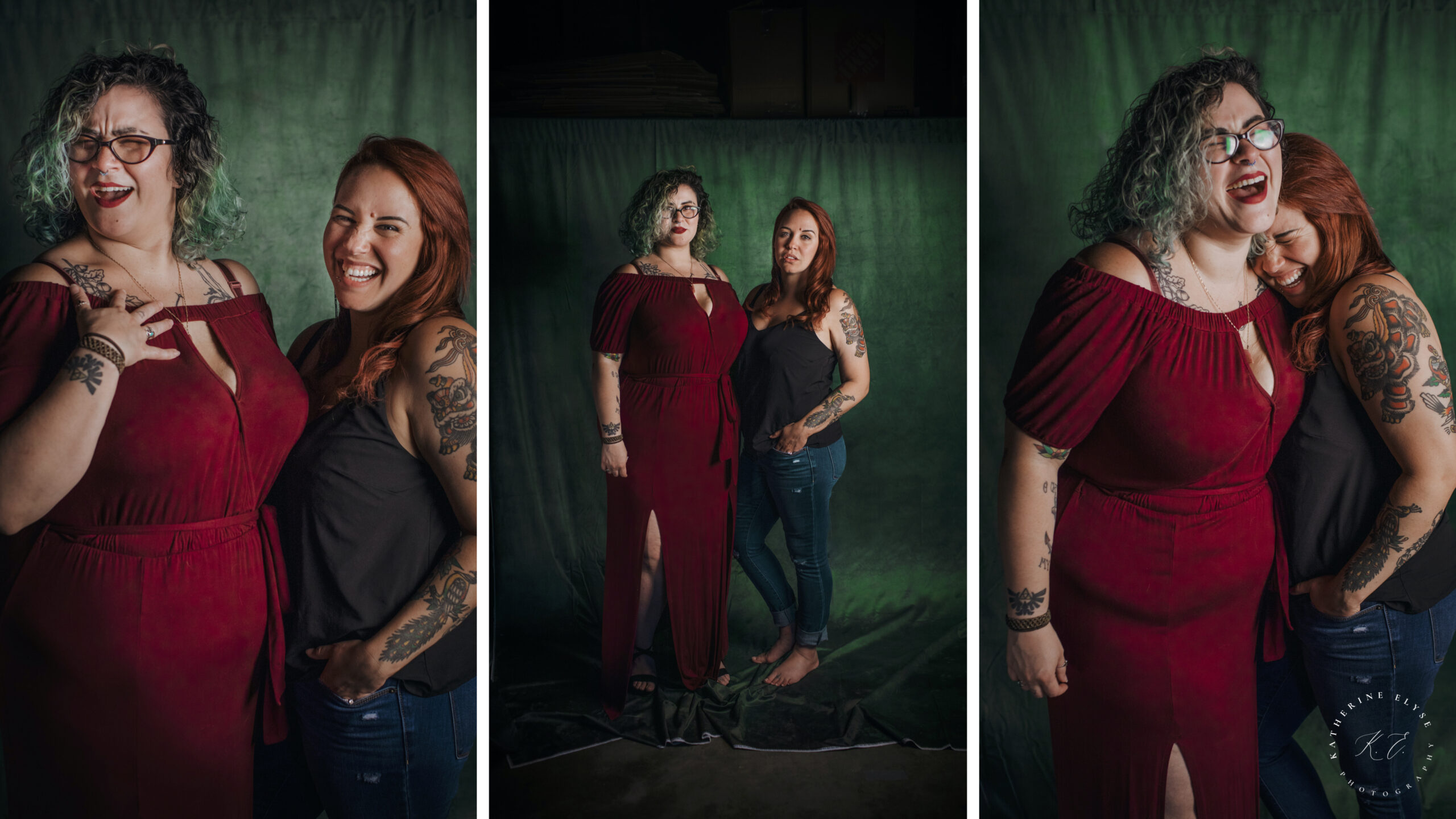
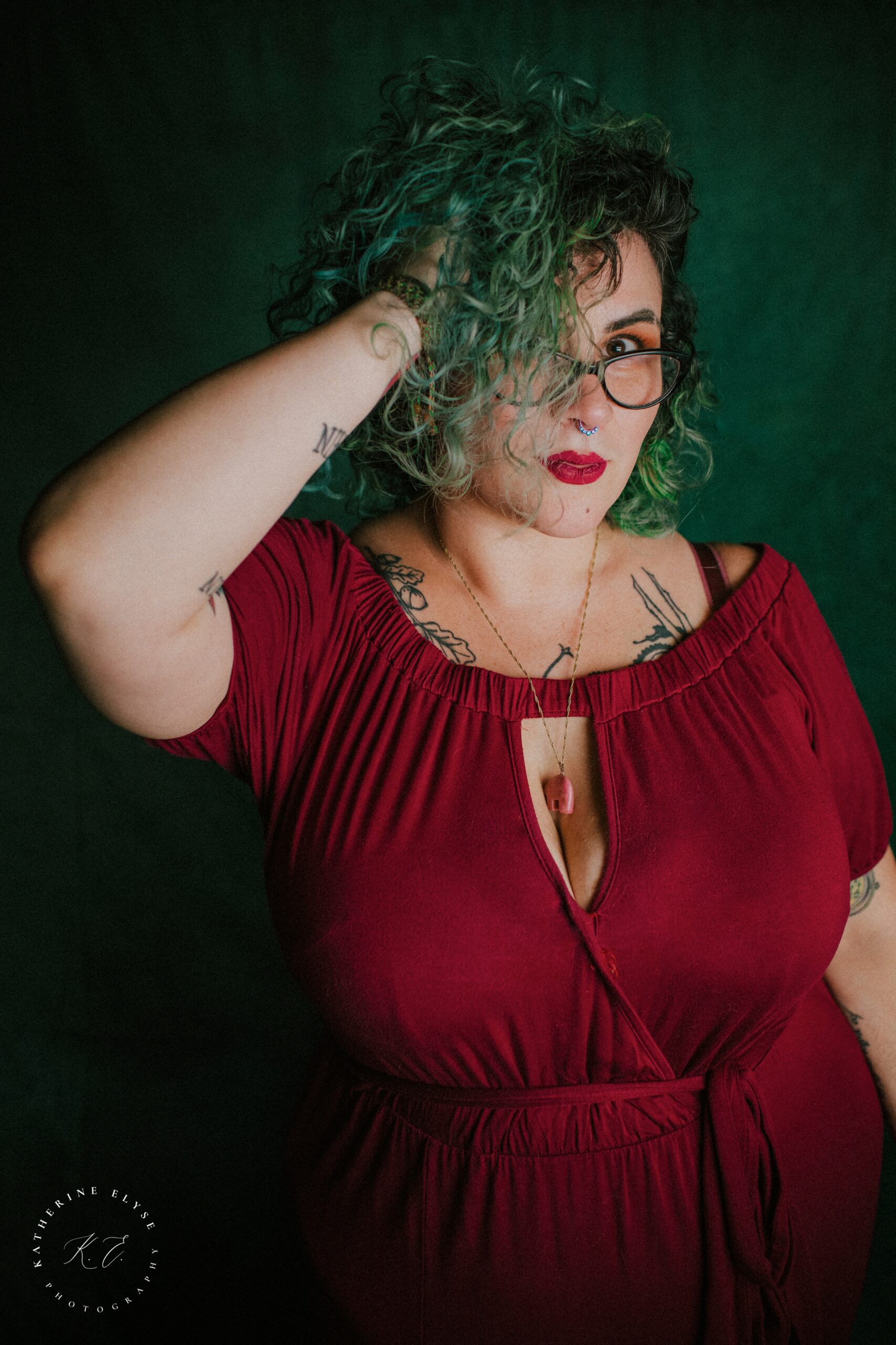
Comments Off on To Be Queer: Maia